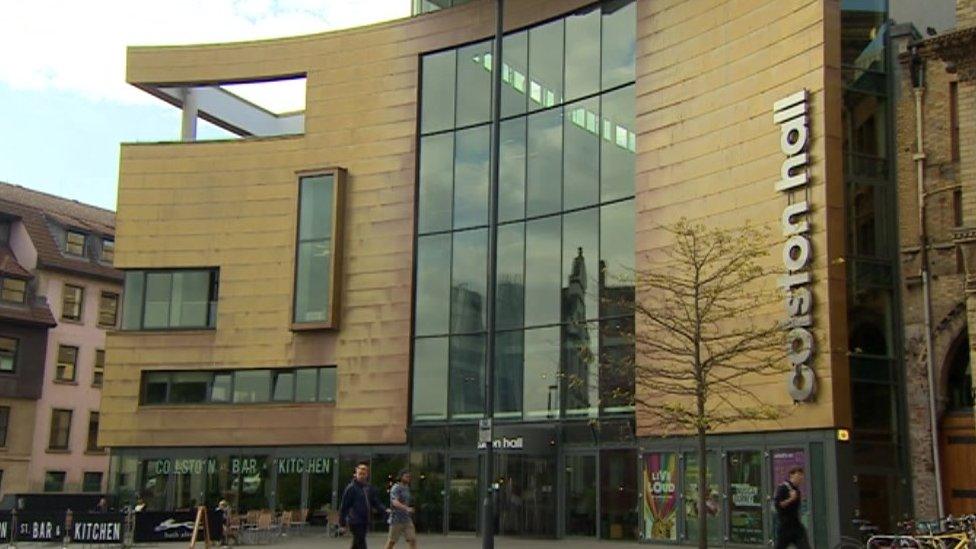Colston Hall music venue renamed Bristol Beacon
- Published
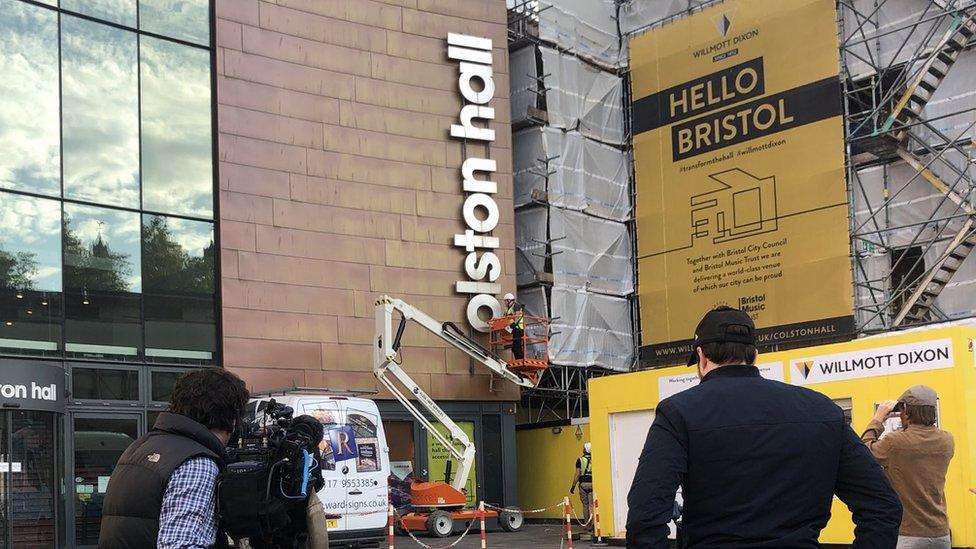
The main sign bearing old name was removed from the building in June
A famous music venue in Bristol named after slave trader Edward Colston has been given a new name.
The Colston Hall will now be known as Bristol Beacon.
Bristol Music Trust, which runs the venue, said it hoped the renaming would be "a fresh start for the organisation and its place in the city".
The hall is near where a statue of the 17th Century slave trader was torn down by protesters in June during an anti-racism protest.
The name was revealed at an event in the venue's foyer on Wednesday without a live audience due to Covid-19 restrictions.
Bristol's city poet Vanessa Kisuule wrote a work to mark the occasion - captured in a short film - and the Bristol Beacon name was revealed for the first time in the last line of the poem.
Louise Mitchell, chief executive of the trust, said Bristol Beacon would be "a symbol of hope and community".
"A focal point for music in the city. A gathering space, illuminating the way ahead. A place of welcome, warmth and light," she said.
The news was welcomed by the city's elected mayor, who did attend the event.
Marvin Rees said it was not the specific name that mattered "but the fact the city has gone through a process to think about what it calls its iconic venues".
And deputy mayor Craig Cheney said the renaming "also runs in a parallel with the city conversation reflecting on our history and how this understanding can be represented in our future".
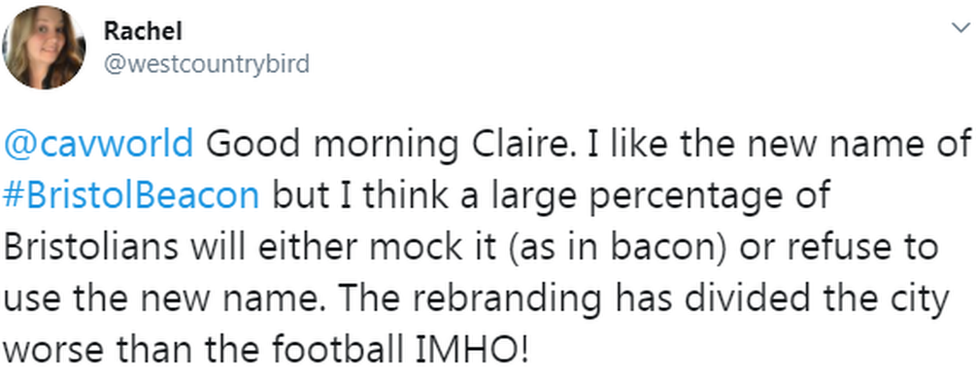
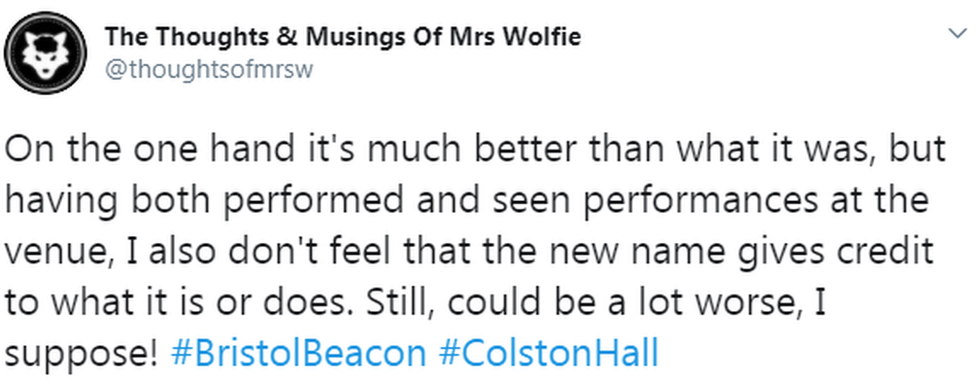
Bristolians took to social media to express their views, with one woman saying the name did not give credit to what the venue is or does, external.
Twitter user Mike Norman, external called it a "fantastic new name" and a "great moment for Bristol".


But Clive Wilkinson said the venue, external had "had three years to come up with something that sounds like a local free newspaper".
And Westcountrybird was concerned a large percentage of Bristolians would either mock it or not use the new name.
"The rebranding has divided the city worse than the football IMHO," she said.
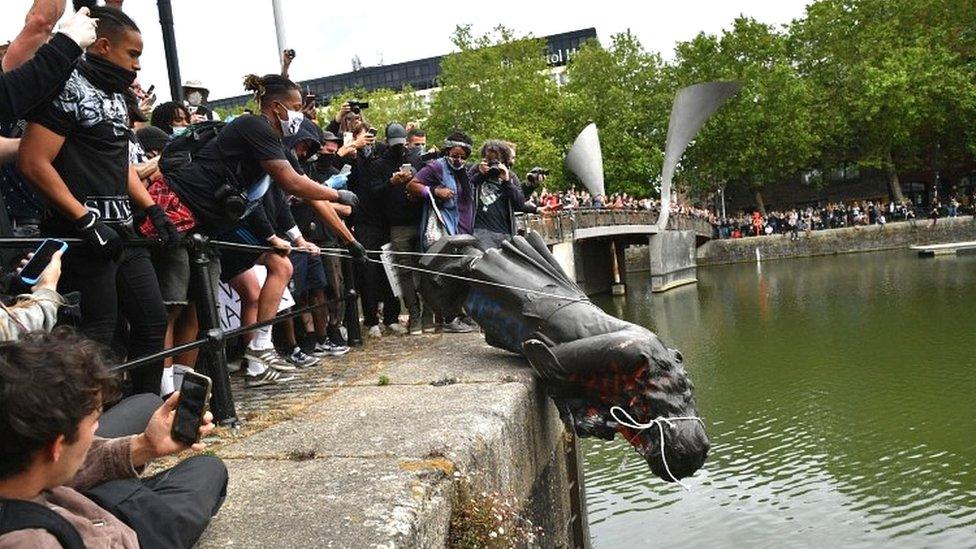
The statue of Edward Colston was dragged through Bristol before being thrown into the harbour
The trust said it had consulted with 4,000 people across the city about the new name and it had been endorsed by the board of trustees.
It added the venue was built 150 years after Colston's death in 1721 with no financial investment or direct link to the man or his wealth.
Bosses originally announced in 2017 they planned to change the building's "toxic" name.
The "Colston Hall" lettering was physically removed from the building eight days after the statue was toppled.
Colston made his fortune through human suffering and between 1672 and 1689. In that period, ships were believed to have transported about 80,000 men, women and children from Africa to the Americas.
Colston was also a philanthropist, and Bristol honoured his benevolence, naming dozens of buildings, institutions, charities, schools, sports clubs, pubs, societies and roads after him.
A new logo for the venue will be created over the next few months "in partnership with local young emerging creatives", a spokesperson added.
- Published15 June 2020
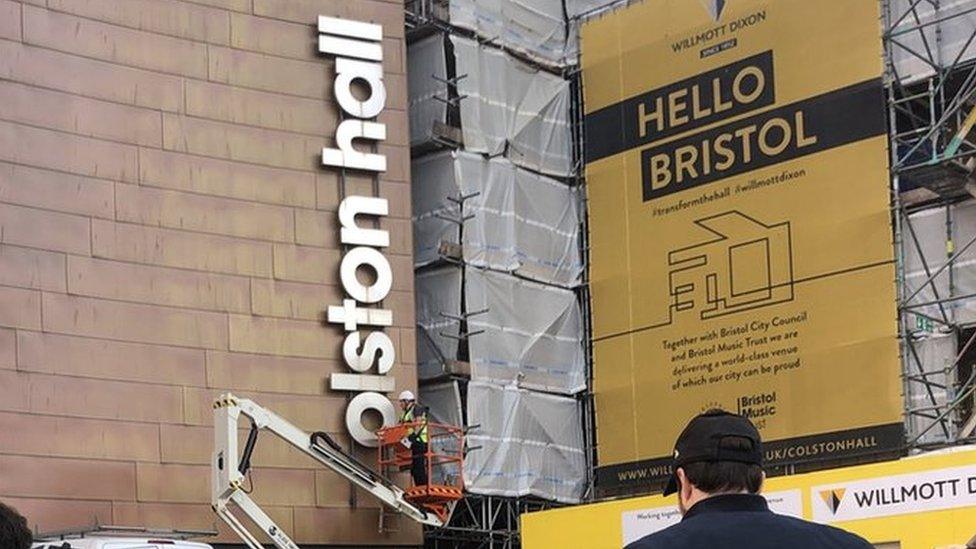
- Published13 June 2020

- Published8 June 2020
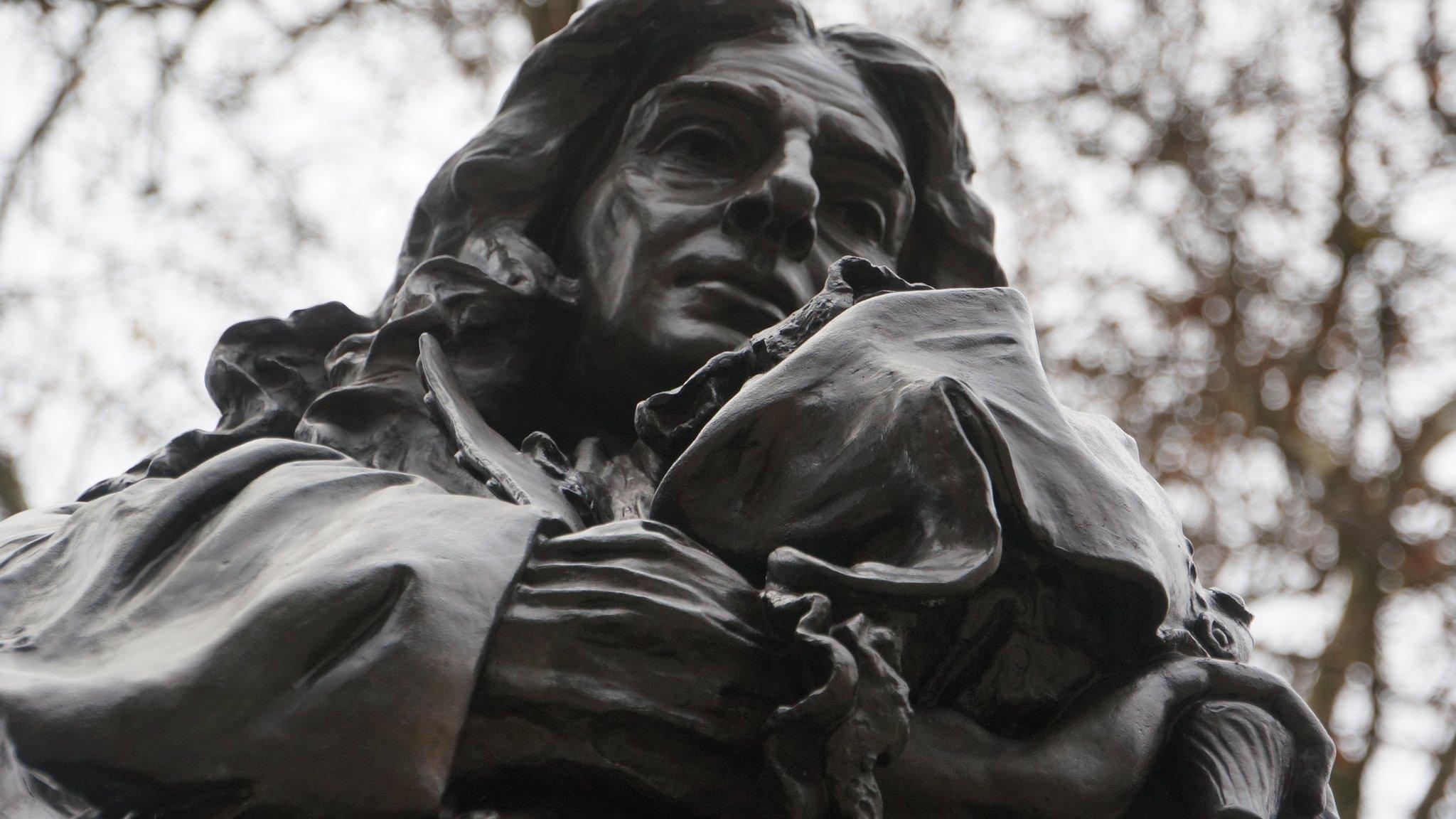
- Published8 June 2020

- Published26 April 2017
